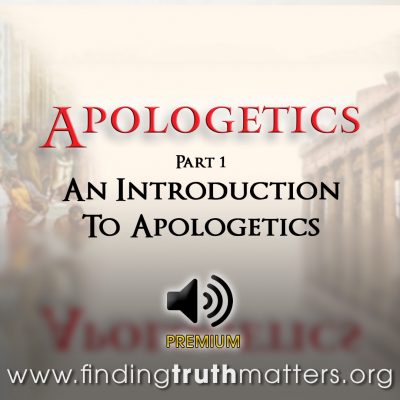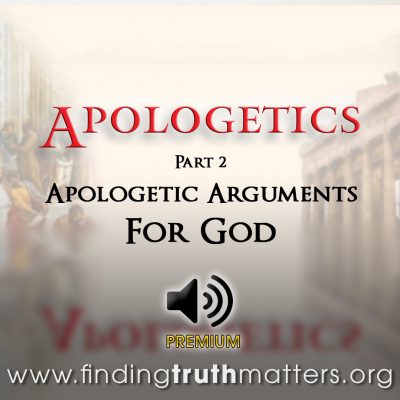home > articles > apologetics > How Christianity Is Different From (Other) Religions
 Experts in Religious Studies will tell you that there are 11 “living” religions. Of these, there are 5 global religions including: Christianity, Islam, Buddhism, Hinduism and Judaism. Of these 5 global religions, 4 of them are missionary religions (Judaism is the exception). This article is in an introduction to how Christianity is different from these three other “missionary” religions.
Experts in Religious Studies will tell you that there are 11 “living” religions. Of these, there are 5 global religions including: Christianity, Islam, Buddhism, Hinduism and Judaism. Of these 5 global religions, 4 of them are missionary religions (Judaism is the exception). This article is in an introduction to how Christianity is different from these three other “missionary” religions.
FACTS ABOUT THE FOUR GLOBAL MISSIONARY RELIGIONS
It is estimated that there are 2.1 billion people who identify themselves as Christian. (Source: “Major Religions of the World Ranked by Number of Adherents”. 2005. Retrieved 19 Jun 2010.)
It is estimated that there are 1.5 billion Muslims in the world.

It is estimated that there are around 400 million Buddhists around the world.

It is estimated that there are 1 billion Hindus around the world.

WHAT IS A RELIGION?
Religion is generally considered to be (1) a system of worship which has a set of beliefs and rules expressed in certain rituals with varying degrees of devotion ranging from nominalism to devotee. Most usually, religion involves (2) worship of God and a set of beliefs about God and His will for mankind. It provides (3) a way of looking at life, mankind’s condition, God’s relationship to His creation, the appropriate way to respond to God, and how people should treat each other. This is called “worldview”.
According to the CIA’s Factbook, published July 2012, the world’s population (7,021,836,029) by religious affiliation is –
| 31.39% | Christian |
| 22.74% | Muslim |
| 13.80% | Hinduism |
| 6.77% | Buddhism |
| 0.35% | Sikhism |
| 0.22% | Judaism |
| 0.11% | B’hai’ism |
| 10.95% | Other |
| 9.66% | Non-religious |
| 2.01% | Atheism |
Interestingly, despite Atheism’s claims against “religion” it goes about its quest in a very religious fashion. It makes claims about God, mankind, the after-life, and the identity of Jesus Christ. This ironically makes it quite religious. Added to this, Buddhism is fundamentally atheistic and it universally considered a religion.
AREN’T ALL RELIGIONS BASICALLY THE SAME?
We hear this all the time, that all religions are basically the same. It is variously expressed with expressions such as, “All religions worship the same God … All religions promote the same values … Any religion will get you to Heaven.” These opinions are at best uninformed, they are at least insulting to each of these religions, and at worst dangerous. To show why, we will consider the four major claims of each religion and then compare them with each other.
RELIGIONS’ CLAIM #1: GOD
| RELIGION | CLAIM ABOUT GOD |
| Islam |
God is known as “Allah”. He is eternal. He is omnipotent. He is morally arbitrary (not bound by laws or consistent). He is a solitary person who does not have a son. Islam is not only monotheistic (one God) it is monolithic (one divine person). |
| Buddhism | There is no God. There is no Creator. Matter is eternal. |
| Hinduism | God is a personified force known as Brahma. From himself he created the world and from the different parts of himself he created castes of people. He can worshiped as any expression since he is the creation, hence there are over 300,000,000 “deities” in Hinduism. |
| Christianity | God is Father, Son and Holy Spirit – co-eternal, co-existent, co-equal, “holy” (bound by moral laws and consistently so), and infinitely loving. |
As you can see from this summary table, the most foundational concept to all religions, God, is viewed not only differently by each major religion, it is viewed radically differently! It is simply not possible or logical for each presentation of God by these religions to be true because they cannot both contradict each other and be true at the same time. They could each be false, but they simply cannot all be true.
RELIGIONS’ CLAIM #2: MANKIND
| Islam |
|
|||||||||||||||||||||
| Buddhism |
|
|||||||||||||||||||||
| Hinduism |
|
|||||||||||||||||||||
| Christianity |
|
Again, it is clear that each of these religions regards mankind through entirely different worldviews. They also regard the problem facing mankind entirely differently.
RELIGIONS’ CLAIM #3: THE AFTER-LIFE
| RELIGION | VIEW ON THE AFTER-LIFE |
| Islam |
“Paradise” or “Hell” Paradise will consist of a harem of up to 70 virgins to eternally satisfy sexual desire. Allah will judge the world through Jesus Christ. |
| Buddhism | “Nirvana”, that is nothing. There is no after-life. |
| Hinduism | There is no after-life. Eventually a devotee hopes to transmigrate to become one with the universe. |
| Christianity | There is a Heaven and Hell which will result after the Day of Judgment. |
Each of the major religions regards the after-life utterly differently.
RELIGIONS’ CLAIM #4: THE IDENTITY OF JESUS CHRIST
| RELIGION | VIEW ON THE IDENTITY OF JESUS CHRIST |
| Islam | Jesus Christ was a true prophet. He lived a sinless life. He was not crucified. He ascended into Heaven and will one day return to judge the world for Allah. |
| Buddhism | Jesus Christ was the reincarnation of the Buddha. He was an Enlightened One. |
| Hinduism | Jesus Christ was a great teacher. |
| Christianity | Jesus Christ was the eternal Son of God who became a man to die for the sins of mankind. |
Every major religion honours Jesus Christ in some fashion. Despite Islam claiming that He was a true prophet of God they consider what He said about Himself to be false. Jesus Christ claimed to be the eternal Son of God who would die on a cross and rise from the dead. He claimed that He was the only way to God the Father and that no-one could go to Heaven unless they surrendered their life to Him.
Jesus said to him, “I am the way, and the truth, and the life. No one comes to the Father except through me.
John 14:6
In John 14:6 Christ claimed be the exclusive way to God and the truth of God and the very life of God. In John 8, He told the very religious Jews that because they rejected Him, they would “die in their sins”. Therefore, according to Christ, religious sincerity is not the means by which a person can find peace with God.
I told you that you would die in your sins, for unless you believe that I am he you will die in your sins.”
John 8:24
It is this last claim that is the most important to consider. Jesus asked His disciples, “…but who do you say that I am?” By asking this question He gave us the question that settles all matters of religious verity. Jesus did not, and does not, leave anyone with the option of considering that He is some mere religious option. Neither does does He tolerate the notion that man’s religious practices can solve the fundamental problem in every human heart. He condemned the most religious people of His day for practising Godless religion. And this highlights the difference between following Jesus Christ and His teachings compared with all other religions. “Reliigon” in one sense is the means by which man attempts to be his own God! The requirements of every major religion outside of following Christ are not the requirements that God Himself has given! God has provided not “a” means of salvation leading to eternal life and divine peace – but “the” means.

How can we know which religion is the truth? We have seen that they simply cannot all be equally and simultaneously true because they each radically differ from each other. There are very straight forward tests for ascertaining the truthfulness of any religious claims. Firstly, does it agree with the way the world really is? That is, is it demonstrably true? If it claims that the universe is eternal and without cause, does this align and agree with what we know about how things generally exist and come into being? Secondly, can its claims be verified? Claims such as geographical, historical, and factual claims can be tested for verifiability. And thirdly, does its founder have credibility and impeccability? It is for these reasons that many have turned to Jesus Christ and His teachings as revealed in the 66 Books of the Bible as the most demonstrably true of all religions, its facts the most easily verifiable, and its Founder the most impeccable and trustworthy.

© Dr. Andrew Corbett, 5th May 2013, Legana, Tasmania
1 Comment
Submit a Comment
-
Sale!

5 Things We Need To Do To Break Our Church’s 200 Barrier, Premium Audio
Original price was: $1.75.$0.95Current price is: $0.95. -
Sale!

A Morning With Izaak Walton – The Compleat Man, Premium Audio
Original price was: $1.75.$1.25Current price is: $1.25. -
Sale!

Apologetics Part 1 – Introduction To Apologetics, Premium Audio
Original price was: $1.75.$0.95Current price is: $0.95. -
Sale!

Apologetics Part 2 – The Apologetic Arguments For God, Premium Audio
Original price was: $1.75.$0.95Current price is: $0.95. -
Sale!

Apologetics Part 3 – The Apologetic Arguments For The Bible, Premium Audio
Original price was: $1.75.$0.95Current price is: $0.95. -
Sale!

Apologetics Part 4 – The Apologetic Arguments For Christianity, Premium Audio
Original price was: $1.75.$0.95Current price is: $0.95.










































Praise God! This is a very valuable site!